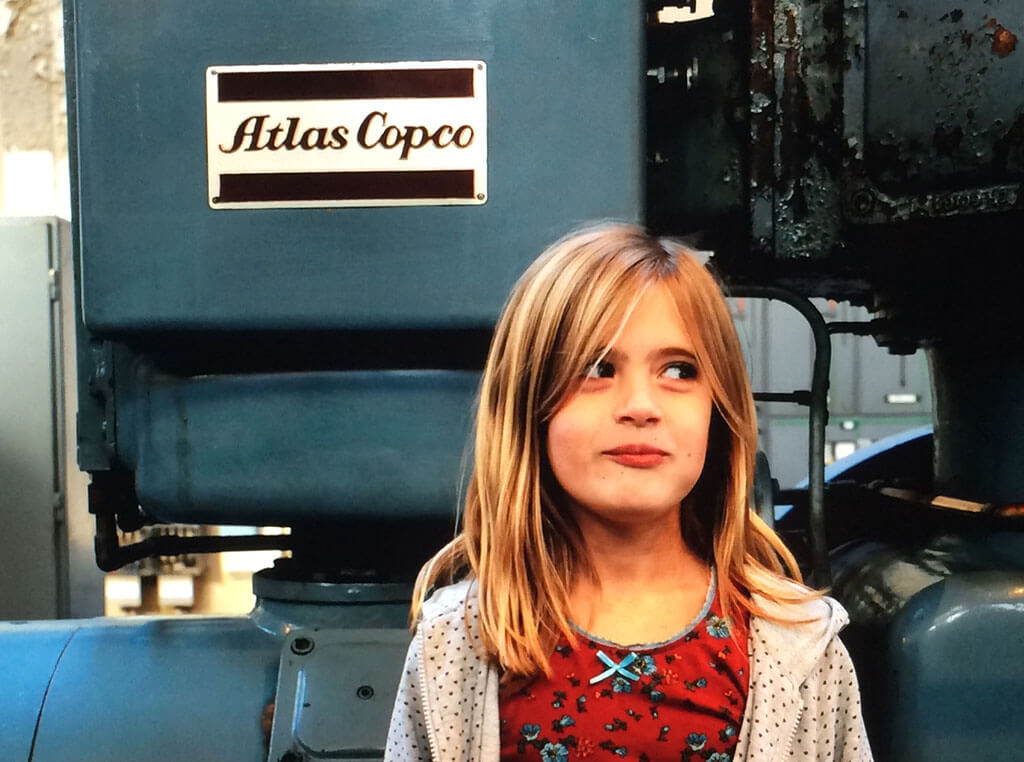Written by Hanna van Rixtel
27/05/2023
May 2011. My little brother and I are having a sleepover with my grandparents, in their lovely big house in a small village. It is a warm spring evening, so we have dinner outside in the garden. Grandpa, as always when we visit, is frying chips in the shed. A cornetto for dessert and then a quick walk with the dog. What do you guys want to do tonight, Grandma asks, anything goes! We brought a pile of films and want to watch High School Musical. Grandma can no longer follow exactly what is happening, so we all read out the subtitles. Grandpa even sings along to the songs. Then it’s bedtime; my little brother and I have our own room. The big house is quite spooky at night, so we can’t sleep. Softly, we sneak into grandpa and grandma’s room and climb into the big bed. The next morning, we all wake up. We drive to the bakery in Belgium for breakfast. My brother and I both get to choose something sweet, as our father always lets us choose something sweet, which we will probably let our children do too.
May 2023. Thinking back on this memory, I can’t wait for my parents to become grandparents to my children in the future. They will also make memories like riding bikes, visiting a farm or zoo, playing games and reading a book. All things I did with my parents that I appreciated. These experiences and the examples of relationships around me make me imagine this part of my future, having children and seeing them with my parents as their grandparents. I know my values in my current relationships, which I reflect in this picture of the future.
This is only a small part of my future. The whole context in which this will happen is much harder to imagine. There are so many options, uncertainties, choices and challenges that define that context. Will we live in a technology-driven or a nature-driven environment? Will we live in communities or individually? Will we travel in the physical or digital world? As a designer, I can imagine all kinds of options, but what exactly will happen remains open. But it is increasingly important to ask these questions, because our actions today have implications for tomorrow. But within this field of futures literacy, there are still many people, across society, who are unable to imagine and act on the future, and who call for creative methods to change this awareness (Mangnus et al, 2021).
“Hi Mum, I am your future child. I just arrived from 2038. I will tell you everything that will happen in our future.”
So, what if my future child, from, say, 2038, traveled back to me in 2023 and showed me a piece of his or her daily life, our future. I might receive images, artifacts or stories from that particular year, making it visible, creating Experiential Futures as Candy and Kornet explain it (Candy & Kornet, 2019). The relationship I feel with the person time traveling, in this case my future child, forces me to reflect on whether I want this future or not. It becomes a personal reflection of values, needs and concerns. I could take action on it because I can imagine the consequences of my current actions.
This Time-Travellers method is researched in the course Researching The Future Everyday at the MSc Industrial Design at Eindhoven University of Technology (Lockton, 2023). Our research group is specifically investigating how receiving children’s books from your future child can help them imagine the future and whether it teaches them things about the present. The underlying idea is that children’s books are often used to explain or cover topics relevant to that generation. Time traveling becomes a method of imagining the future, thinking about it, reflecting on our actions in the now. Relationships make it more urgent and pressing, but also give a sense of a projected future because your relationships can be a continuation of the past and present (Voros, 2017). In our study, we used the parent-child relationship, but these can be many relationships: family, friends, work-related, such as a teacher and a student, they all start with values, needs and concerns going into the future.
May 2038. I woke up at my grandparents place, softly I also wake up my grandpa to go to the bakery. We walk through the neighborhood to get some fresh bread. I get to choose something sweet, just like my grandfather also always let my mother choose something sweet.
References
Candy, S. and Kornet, K. (2019). Turning Foresight Inside Out: An Introduction to Ethnographic Experiential Futures. Journal of Futures Studies, 2019, 23(3): 3–22
Lockton, D. (2023, 21 april). Theme 1: The Time-Travellers – TU/e Researching the Future Everyday. https://rtfe.imaginari.es/2023/04/21/theme1/
Mangnus, A.C. Oomen, J. Vervoort, J.M. Hajer, A.M. (2021). Futures literacy and the diversity of the future. Futures 132.
Voros, J. (2017). The Futures Cone, use and history. https://thevoroscope.com/2017/02/24/the-futures-cone-use-and-history/


